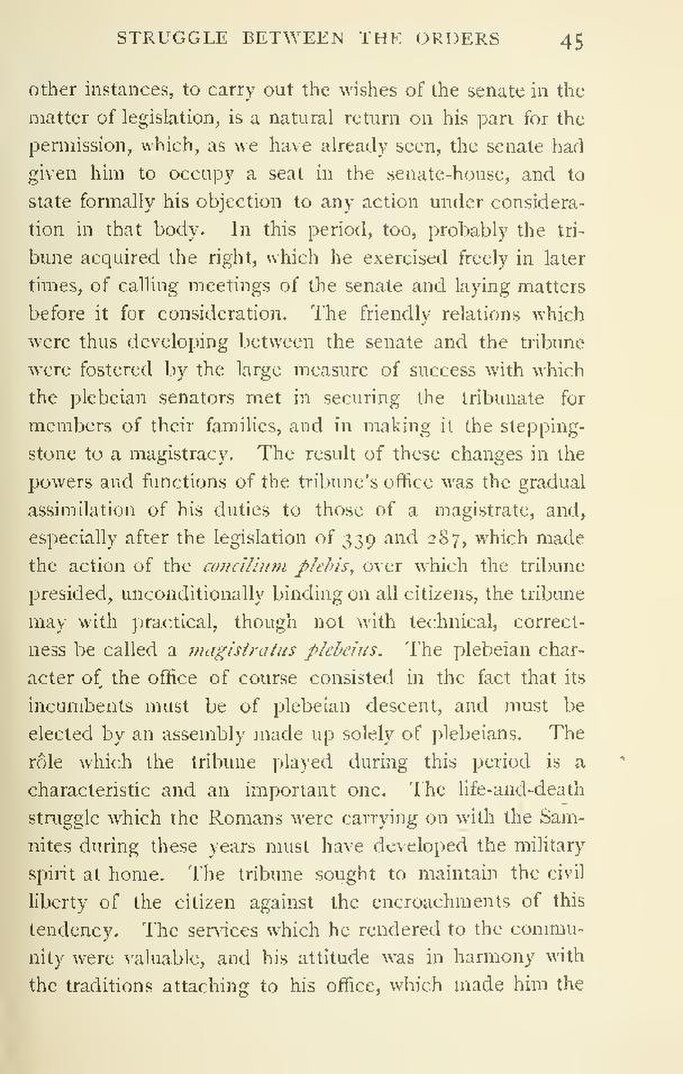other instances, to carry out the wishes of the senate in the matter of legislation, is a natural return on his part for the permission, which, as we have already seen, the senate had given him to occupy a seat in the senate-house, and to state formally his objection to any action under consideration in that body. In this period, too, probably the tribune acquired the right, which he exercised freely in later times, of calling meetings of the senate and laying matters before it for consideration. The friendly relations which were thus developing between the senate and the tribune were fostered by the large measure of success with which the plebeien senators met in securing the tribune for members of their families, and in making it the stepping-stone to a magistracy. The result of these changes in the powers and functions of the tribune's office was the gradual assimilation of his duties to those of a magistrate, and, especially after the legislation of 339 and 287, which made the action of the concilium plebis, over which the tribune presided, unconditionally binding on all citizens, the tribune may with practical, though not technical, correctness be called a magistratus plebeius. The plebeian character of the office of course consisted in the fact that its incumbents must be of plebeian descent, and must be elected by an assembly made up solely of plebeians. The rôle which the tribune played during this period is a characteristic and an important one. The life-and-death struggle which the Romans were carrying on with the Samnites during these years must have developed the military spirit at home. The tribune sought to maintain the civil liberty of the citizen against the encroachments of this tendency. The services which he rendered to the community were valuable, and his attitude was in harmony with the traditions attaching to his office, which made him the
